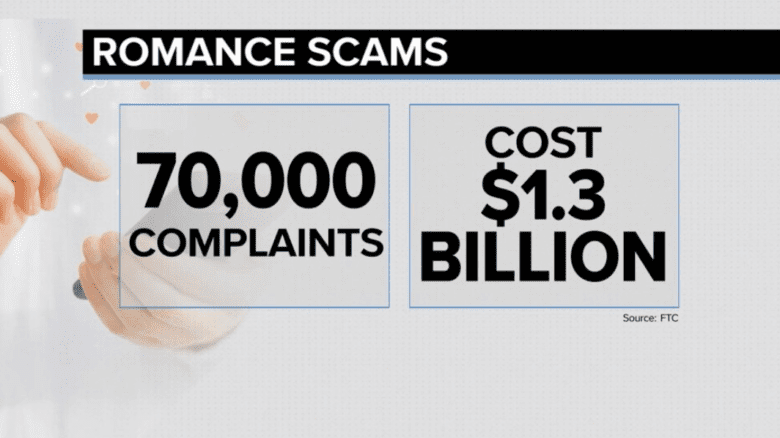Romance Scams Are Surging — Here’s Why You Should Care
In the first quarter of 2025, romance scam reports have risen dramatically. The Barclays scams bulletin revealed a startling 20% increase compared to the same period in 2024, shedding light on how scammers are exploiting the growing popularity of online dating and dating apps. With more people seeking companionship on digital platforms, the risk of being targeted by a fraudster has never been higher.
The emotional consequences of these scams are just as severe — many victims describe feeling angry, embarrassed, or even too discouraged to pursue future relationships. It’s important to understand that these schemes are not about naivety; they are about expertly executed emotional and psychological manipulation.
The Digital Love Trap: How Online Dating Fuels Scammer Success
The rise of online dating and the broad accessibility of dating platforms have created fertile ground for modern-day romance scams. Tech companies have made it easier than ever to connect, but those same tools are being misused by scammers operating behind false identities. According to Barclays, most scams originate on social media or dating apps, where a false sense of intimacy can be quickly constructed.
A fraud and scams expert at Barclays explained that many platforms are “operating on their platforms with minimal oversight,” allowing bad actors to impersonate others, gain trust, and ultimately manipulate victims into sending money. These scammers often communicate frequently, build emotional bonds, and then fabricate a reason for needing urgent funds.
Inside the Mind of a Scammer: Tactics You Need to Know
Emotional Engineering & Fake Emergencies
Scammers commonly exploit emotion and loneliness, establishing a romantic rapport before orchestrating a fake crisis. In many cases, the scammer asked for money within less than a month of making contact. These fake emergencies often include:
- Sudden medical procedures
- Visa or travel costs
- Family tragedies
These schemes are carefully designed to appear urgent, convincing the victim that sending money is the only way to help someone they’ve grown to trust.
Creating a False Sense of Urgency
A tactic seen in volume across cases is the creation of a false sense of urgency. Roughly 32% of victims reported feeling pressure to act quickly after the scammer presented a fabricated scenario. This strategy taps into instinct and compassion, overriding the logical mind and prompting financial action.
Exploiting Loneliness and Desire
Nearly 27% of reported victims admitted they were feeling lonely at the time they were targeted. The scammer’s strategy is to gain trust and trick victims into forming emotional attachments. Once emotionally invested, victims are far more likely to ignore red flags, rationalize odd behavior, and fall deeper into the trap.
Who Are the Victims? The Face of Romance Scam Losses in 2025
According to data from the Barclays scams bulletin, UK adults have been targeted in significant numbers. In particular:
- Men account for 60% of reported romance scam cases.
- Women aged 61 and over suffer the highest financial losses.
- Victims are often educated, self-sufficient individuals who simply trust too easily.
These findings reveal that anyone, regardless of age or background, can become a victim. Scammers don’t look for foolish people; they look for vulnerable ones. Emotional openness, especially on platforms where romantic interest is assumed, becomes the perfect avenue to exploit.
The Role of Tech Companies: Can They Stop the Rise?
So, what are tech companies doing to combat this sharp increase in fraud?
A growing number of experts are calling for more responsibility from the platforms themselves. The public agrees — 76% of consumers believe that companies should do more to prevent romance scammers from operating on their platforms. Suggested interventions include:
- Email and phone number data matching at signup
- AI-powered systems to flag fake profiles
- Enhanced detection of suspicious media, such as AI-generated or stolen photos
While technology holds the potential to block fraud attempts at the source, the report suggests that current efforts by most tech platforms remain reactive rather than proactive.
What To Do If You’ve Been Scammed: Action Steps for Victims
If you’ve fallen for a romance scam, don’t let shame prevent you from taking action. Here’s what to do:
- Cut contact with the scammer immediately.
- Report the scam to your bank, local law enforcement, and national cybercrime agencies.
- File a complaint with the FBI’s Internet Crime Complaint Center or Action Fraud. Notify the dating app or social media platform where the scam occurred.
- Seek support. Many victims experience deep emotional wounds that deserve attention and healing.
Taking these steps quickly may help you recover lost funds and may also prevent romance scammers from continuing their crimes.
5 Red Flags That You’re Talking to a Romance Scammer
Recognizing the warning signs early can save you from serious financial and emotional damage. Here are the top red flags to watch out for:
- They ask for money, especially early in the relationship.
- They never appear on video or meet in person.
- They communicate often but dodge details about their life.
- They claim sudden medical or travel expenses that require your help.
- They isolate you from friends or family to make themselves your only confidant.
These are the common reasons scammers give to justify their urgent requests, always tied to needing money quickly.
Final Thoughts: Rebuilding Trust and Staying Safe Online
As online dating continues to gain momentum, it’s more important than ever to use caution. Remember, the rise in romance scams isn’t because people are gullible — it’s because fraudsters are getting smarter, more manipulative, and better equipped with technology to deceive.
Platforms must do better. Barclays found that while tech companies have the tools to detect and deter fraudulent accounts, few are taking meaningful steps. Until that changes, it’s up to each consumer to stay alert, ask questions, and know the red flags.



